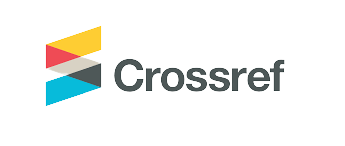Implementation of the Flipped Classroom Method in Fiqh Learning at the Riyadotul Badi'ah Prokimal Islamic Boarding School
Kata Kunci:
Flipped Classroom, Fiqh Learning, Islamic Boarding School, Learning Independence, Riyadotul Badi’ah ProkimalAbstrak
This study discusses the implementation of the flipped classroom method in Fiqh learning at Riyadotul Badi’ah Prokimal Islamic Boarding School. The flipped classroom is a learning strategy that emphasizes independent study through online and offline materials before face-to-face sessions. The main objective is to enhance students’ participation, learning effectiveness, and deep understanding of Fiqh, which is often considered a complex subject. This research employs a qualitative approach with data collected through observation, interviews, and documentation. The findings reveal that the application of the flipped classroom method positively impacts students’ engagement, critical thinking skills, and learning independence. The challenges encountered include limited technological facilities and students’ readiness to access materials independently. Nevertheless, with the support of the school management and adaptive strategies, this method proves relevant and effective for Fiqh learning in the pesantren environment.
Referensi
Al-Samarraie, H., Shamsuddin, A., & Alzahrani, A. I. (2020). A flipped classroom model in higher education: a review of the evidence across disciplines. In Educational Technology Research and Development (Vol. 68). https://doi.org/10.1007/s11423-019-09718-8
Angga, A., Suryana, C., Nurwahidah, I., Hernawan, A. H., & Prihantini, P. (2022). Komparasi Implementasi Kurikulum 2013 dan Kurikulum Merdeka di Sekolah Dasar Kabupaten Garut. Jurnal Basicedu, 6(4), 5877–5889. https://doi.org/10.31004/basicedu.v6i4.3149
Creswell, J. W. (2022). Mixed Methods Research and Evaluation. Thousand Oaks: CA: SAGE Publications.
Fatahillah, A., Chuanchen, C., & Zaini, A. W. (2023). Cultivating Cultural Synergy: Unifying Boarding Schools, Local Wisdom, and Authentic Islamic Values for the Enhancement of Islamic Identity. Managere: Indonesian Journal of Educational Management, 5(2), 187–197. https://doi.org/10.52627/managere.v5i2.339
Fernández-Martín, F. D., Romero-Rodríguez, J. M., Gómez-García, G., & Navas-Parejo, M. R. (2020). Impact of the flipped classroom method in the mathematical area: A systematic review. Mathematics, 8(12), 1–11. https://doi.org/10.3390/math8122162
Hakim, M. M. A., & Fairuz, M. A. A. (2022). Methods and Tawjih Al-Qira’at by Imam Ibn Khalawyh in His Book Named Al- Hujjah. Jurnal Qiraat; Jurnal Al-Qur’an Dan Isu-Isu Konteporari, 5(2), 42–55. Retrieved from https://qiraat.kuis.edu.my/index.php/qiraat/article/view/48
Hastasari, C., Setiawan, B., & Aw, S. (2022). Students’ communication patterns of islamic boarding schools: the case of Students in Muallimin Muhammadiyah Yogyakarta. Heliyon, 8(1), e08824. https://doi.org/10.1016/j.heliyon.2022.e08824
Hoerudin, C. W., Syafruddin, S., Mayasari, A., Arifudin, O., & Lestari, S. (2023). E-Learning as A Learning Media Innovation Islamic Education. QALAMUNA: Jurnal Pendidikan, Sosial, Dan Agama, 15(1), 723–734. https://doi.org/10.37680/qalamuna.v15i1.4466
Huberman, A. M., & Jhonny, S. (2014). Qualitative Data Analysis a Methods Sourcebook. America: Arizona State University.
Hudiawan, M. F. H. H. (2020). Kesejahteraan Masyarakat dalam Tinjauan Maqashid Syariah ( Studi Kasus Di Desa Pujon Kidul Kabupaten. Jimfeb, 13.
Livingstone Thompson. A. (2009). Protestant Theology of Religious Pluralism. Bern-Switzerland: Peter Lang AG: International Academic Publishers.
Majid, Z. A. (2020). Konsep Musyawarah dalam Alqur’an (Kajian Tafsir Tematik). Hikmah: Journal of Islamic Studies, 15(2), 321. https://doi.org/10.47466/hikmah.v15i2.139
Nurdin, A. (2016). Inovasi Pembelajaran Pendidikan Agama Islam Di Era Information and Communication Technology. TADRIS: Jurnal Pendidikan Islam, 11(1), 49. https://doi.org/10.19105/tjpi.v11i1.971
Paduli, G. (2025). Sustainable Well-Being & Clinical Resilience: Psikologi Positif untuk Krisis Mental. PT. Star Digital Publishing, Yogyakarta-Indonesia.
Purwowidodo, A., & Zaini, M. (2024). Developing a Value-Based Moderate Islamic Education Model: A Case Study of Pesantren Sidogiri Pasuruan. Jurnal Pendidikan Agama Islam (Journal of Islamic Education Studies), 12(1), 43–62. https://doi.org/10.15642/jpai.2024.12.1.43-62
Putri, H. A., Wahyuningsih, R., & Masruroh, F. (2023). Developing Children’s Memory in memorizing the Qur’an Juz 30 Using Talaqqi Method for 5-6 Year-Old Children at Taman Qur’an Kindergarten Banyuwangi. ICHES: International Conference on Humanity Education and Sosial, 2(1), 11. Retrieved from https://proceedingsiches.com/index.php/ojs/issue/view/2
Rizal, M. S. (2023). The Existence Of Traditional Islamic Boarding School Education In The Era Of Industrial Revolution 4.0 Accepted: AL YASINI: Jurnal Keislaman, Sosial, Hukum Dan Pendidikan, 08(36), 310–328. https://doi.org/http://doi.org/10.55102.alyasini.v8i2
Sabiq, A. (2022). The Role of Islamic Boarding Schools in Building National Morality Towards Golden Indonesia 2045. Wawasan: Jurnal Kediklatan Balai Diklat Keagamaan Jakarta, 3(1), 16–30. https://doi.org/10.53800/wawasan.v3i1.118
Sirajuddin. (2018). Berita Hoax Dalam Perpektif Al-Qur’an (Kajian Tafsir Tematik). UIN Sultan Thaha Saifuddin Jambi.
Siswanto, E., & Soeharno, A. (2024). Recent Learning Innovations: Increasing The Use Of Blogs As Learning Media For Educators. Journal Of Humanities Community Empowerment, 2(1), 30–36.
Sugiyono. (2010). Metode Penelitian Pendidikan. Bandung: CV Alfabeta.
Sugiyono. (2015). Metode Penelitian Pendidikan (Pendekatan Kuantitatif, Kualitatif, Dan R&D). Bandung: Alfabeta.
Supriyanti, Kurniawati, D., & Susanto, R. (2025). Analysis of the Minister of Education ’ s Curriculum Policy in the 2019-2024 Vs . 2024-2029 Era. QALAMUNA: Jurnal Pendidikan, Sosial, Dan Agama, 17(1), 741–754. https://doi.org/10.37680/qalamuna.v17i1.7127
Susanto, R., Ali, M. M., & Hidayat, M. D. (2024). Islamic Religious Education in the Independent Learning Curriculum. IKTIFAK : Journal of Child and Gender Studies, 02(02), 63–72. https://doi.org/https://doi.org/10.55380/iktifak.v2i2.962
Widodo, W., Susanto, R., & Kolis, N. (2023). The Relevance of Ki Hajar Dewantara’s Thinking on Multicultural Educational Values. International Conference on Islam, Law, and Society (INCOILS) Conference Proceedings, 3(1). Retrieved from https://incoils.or.id/index.php/INCOILS/article/view/154
Yahuda, R. D., Susanto, R., Widodo, W., & Kolis, N. (2024). Totally Muslim Truly Intellectual-Based Holistic Education in Postgraduate Programs. QALAMUNA: Jurnal Pendidikan, Sosial, Dan Agama, 16(2), 1399–1410. https://doi.org/10.37680/qalamuna.v16i2.4104
Yahuda, R. D., Susanto, R., Widodo, W., Kolis, N., & Abdillah, B. (2023). Musafahah Method Transformation on Learning Qiraat Sab’ah in PPTQ Al-Hasan Ponorogo. Mashdar: Jurnal Studi Al-Qur’an Dan Hadis, 5(2), 133–146. https://doi.org/10.15548/mashdar.v5i2.7293
Unduhan
Diterbitkan
Cara Mengutip
Terbitan
Bagian
Lisensi
Hak Cipta (c) 2025 Journal of Islamic Studies and Educational Innovation

Artikel ini berlisensiCreative Commons Attribution-ShareAlike 4.0 International License.







